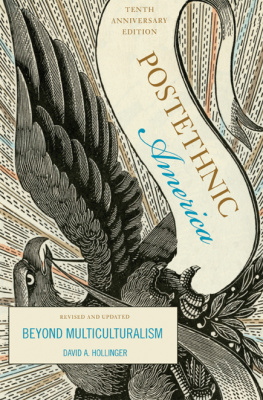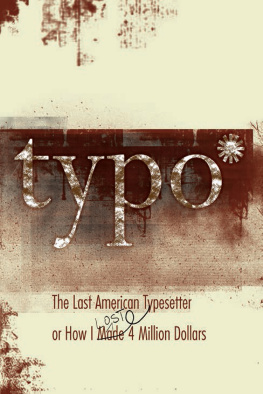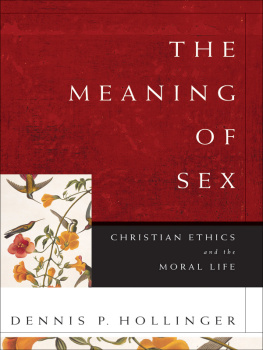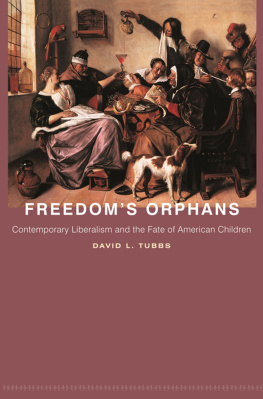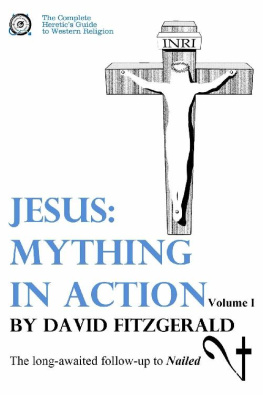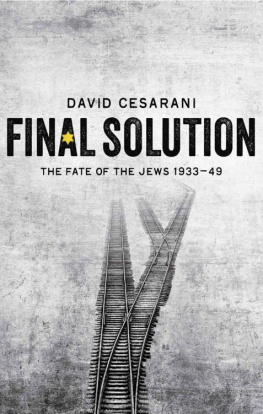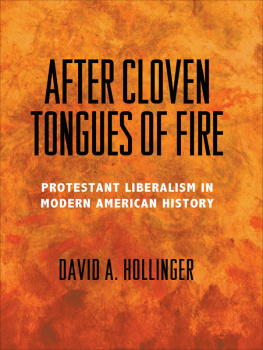David A. Hollinger - Christianitys American Fate
Here you can read online David A. Hollinger - Christianitys American Fate full text of the book (entire story) in english for free. Download pdf and epub, get meaning, cover and reviews about this ebook. year: 2022, publisher: Princeton UP, genre: Religion. Description of the work, (preface) as well as reviews are available. Best literature library LitArk.com created for fans of good reading and offers a wide selection of genres:
Romance novel
Science fiction
Adventure
Detective
Science
History
Home and family
Prose
Art
Politics
Computer
Non-fiction
Religion
Business
Children
Humor
Choose a favorite category and find really read worthwhile books. Enjoy immersion in the world of imagination, feel the emotions of the characters or learn something new for yourself, make an fascinating discovery.

- Book:Christianitys American Fate
- Author:
- Publisher:Princeton UP
- Genre:
- Year:2022
- Rating:4 / 5
- Favourites:Add to favourites
- Your mark:
- 80
- 1
- 2
- 3
- 4
- 5
Christianitys American Fate: summary, description and annotation
We offer to read an annotation, description, summary or preface (depends on what the author of the book "Christianitys American Fate" wrote himself). If you haven't found the necessary information about the book — write in the comments, we will try to find it.
Christianitys American Fate — read online for free the complete book (whole text) full work
Below is the text of the book, divided by pages. System saving the place of the last page read, allows you to conveniently read the book "Christianitys American Fate" online for free, without having to search again every time where you left off. Put a bookmark, and you can go to the page where you finished reading at any time.
Font size:
Interval:
Bookmark:
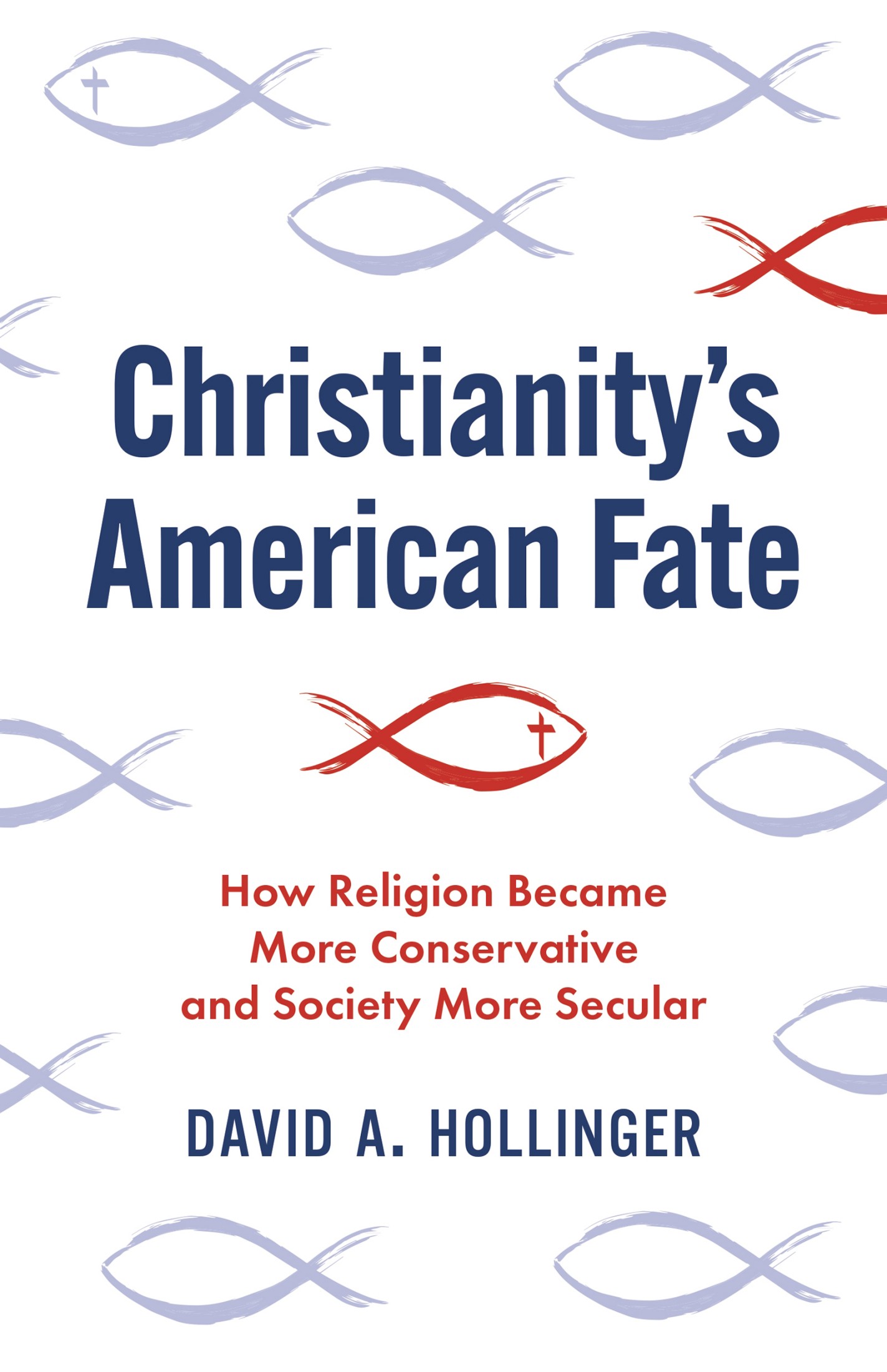
CHRISTIANITYS AMERICAN FATE
ALSO BY DAVID A. HOLLINGER
When This Mask of Flesh Is Broken (2019)
Protestants Abroad (2017)
After Cloven Tongues of Fire (2013)
Cosmopolitanism and Solidarity (2006)
Postethnic America (1995, 2000, and 2006)
Science, Jews, and Secular Culture (1996)
In the American Province (1985)
Morris R. Cohen and the Scientific Ideal (1975)
The American Intellectual Tradition (co-edited with Charles Capper, 7th ed., 2017)
The Humanities and the Dynamics of Inclusion since World War II (edited for the American Academy of Arts and Sciences, 2006)
Reappraising Oppenheimer: Centennial Studies and Reflections (co-edited with Cathryn Carson, 2005)
History at Berkeley (with Gene A. Brucker and Henry F. May, 1998)
Christianitys American Fate
HOW RELIGION BECAME MORE CONSERVATIVE AND SOCIETY MORE SECULAR
DAVID A. HOLLINGER
PRINCETON UNIVERSITY PRESS
PRINCETON & OXFORD
Copyright 2022 by David A. Hollinger
Princeton University Press is committed to the protection of copyright and the intellectual property our authors entrust to us. Copyright promotes the progress and integrity of knowledge. Thank you for supporting free speech and the global exchange of ideas by purchasing an authorized edition of this book. If you wish to reproduce or distribute any part of it in any form, please obtain permission.
Requests for permission to reproduce material from this work
should be sent to permissions@press.princeton.edu
Published by Princeton University Press
41 William Street, Princeton, New Jersey 08540
99 Banbury Road, Oxford OX2 6JX
press.princeton.edu
All Rights Reserved
ISBN 978-0-691-23388-8
ISBN (e-book) 978-0-691-23389-5
Version 1.0
British Library Cataloging-in-Publication Data is available
Editorial: Fred Appel and James Collier
Production Editorial: Jill Harris
Jacket Design: Heather Hansen
Production: Erin Suydam
Publicity: Maria Whelan and Kathryn Stevens
Copyeditor: Joseph Dahm
For Joan, yet again
We take captive every thought to make it obedient to Christ.
2 CORINTHIANS 10:5
Have the courage to use your own understanding.
IMMANUEL KANT
- CONTENTS
- xi
WHEN NON-CHRISTIANS learn of disputes between different groups of Christians, they may remark, I dont have a dog in that fight. But they do. Even in our time, when a smaller percentage of the population than ever before professes the Christian faith, the destiny of the United States as a whole remains significantly determined by individuals and groups who claim the authority to speak for Christianity. Americans in the early twenty-first century find themselves in an increasingly secular society saddled with an increasingly religious politics.
Christianity has become an instrument for the most politically, culturally, and theologically reactionary Americans. White evangelical Protestants were an indispensable foundation for Donald Trumps presidency and have become the core of the Republican Partys electoral strength. They are the most conspicuous advocates of Christian nationalism. Other kinds of Christians, including Catholics, African American Protestants, and nonevangelical white Protestants, remain active in public life, too. But most of Christianitys symbolic capital has been seized by a segment of the population committed to ideas about the Bible, the family, and civics that most other Americans reject.
How did this happen? How did Christianity, a vast and multitudinous force in the United States since its beginning, achieve this shape and come to play the role it now does? This book tries to answer this question, which is much broader than why did evangelicals flock to Trump? At issue is not only Christianitys role in contemporary politics, but the historic momentum of the version of this faith that enabled Trump and is almost certain to survive the present moment.
My inquiry is driven by the deepening of what Barack Obama calls the epistemological crisis threatening democracy. Millions of Americans believe patent falsehoods and live in epistemic enclosures that keep them from hearing even the most well-substantiated and carefully explained truths about vaccines, climate change, election outcomes, immigration, and a host of other matters of great public concern. What has caused this crisis? Media deregulation, internet anarchy, economic conditions, and racial prejudice are blamed, and rightly so. The culture of evangelical Protestantism is another enabler, often acknowledged, but its role in weakening the critical capacities of many Americans is greater than is usually recognized. Contrary to the view that evangelicalism is a benign presence in American life, hijacked by outsiders, I argue that evangelicalisms history prepared it to be just what it showed itself to be in the era of Donald Trump. White evangelical Protestantism is not simply white; it is also evangelical. It took form in a dialectical struggle with a nonevangelical Protestantism led by Americans who were just as white as Billy Graham.
I have told parts of this story before, especially in After Cloven Tongues of Fire: Protestant Liberalism in Modern American History (2013) and Protestants Abroad: How Missionaries Tried to Change the World but Changed America (2017). But here, in Christianitys American Fate: How Religion Became More Conservative and Society More Secular, I offer a more extensive analytic narrative.
My interest in religion and politics goes back to my high school years in Southern California, when I argued with fundamentalist classmates. It was then that I first became aware of the character and significance of what this book calls the ecumenical-evangelical divide. In informal debates with Southern Baptist youths, I voiced what I understood of liberal theology, and I defended the progressive initiatives endorsed by the Christian Century. My fundamentalist friends constantly invoked Billy Graham, but to my dismay none of them had ever heard of the missionary doctor Albert Schweitzer, the great hero of my parents and their circle of churchgoers. At our classs graduation, one Arkansas-born classmate, climaxing four years of more or less genial argumentation, bid me farewell by confidently informing me that people like me will be destroyed at the battle of Armageddon.
I later drifted away from the faith, but retained a feel for it that I hope informs this book. Although I now write from a secular perspective, I know that I, as a post-Protestant, bring to the historians vocation a sensibility that owes much to my Protestant background. I have written about the lives of my church-centered family in When This Mask of Flesh Is Broken: The Story of an American Protestant Family (2019).
Many colleagues and friends offered suggestions on specific chapters and earlier drafts of this book. I am indebted to Randall Balmer, Dorothy Bass, Margaret Bendroth, Jon Butler, Paul Capetz, Mark Chaves, Elesha Coffman, Joseph Creech, Kristin Kobes Du Mez, Richard Fox, Timothy Gloege, Thomas Albert Howard, James Hudnut-Beumler, Daniel Immerwahr, Slavica Jakelic, James Kloppenberg, Bruce Kuklick, Melani McAlister, Christopher Ocker, Mel Piehl, Robert Post, Richard Rosengarten, Mark Schwehn, Brent Sockness, Werner Sollors, Matthew Sutton, Peter Thuesen, Hannah Waits, Molly Worthen, and Gene Zubovich. The experience of writing this book has been enriched by discussions of its leading ideas with a group of treasured colleagues on my own Berkeley campus: Mark Brilliant, Carol Clover, John Connelly, Brian DeLay, Martin Jay, Thomas Laqueur, Marilyn McEntyre, Daniel Sargent, Ethan Shagan, and Jonathan Sheehan. For excellent advice on many issues, I am indebted to Wendy Strothman of the Strothman Agency, and to Fred Appel of the Princeton University Press. My greatest debt is once again to Joan Heifetz Hollinger, to whom this book is dedicated.
Font size:
Interval:
Bookmark:
Similar books «Christianitys American Fate»
Look at similar books to Christianitys American Fate. We have selected literature similar in name and meaning in the hope of providing readers with more options to find new, interesting, not yet read works.
Discussion, reviews of the book Christianitys American Fate and just readers' own opinions. Leave your comments, write what you think about the work, its meaning or the main characters. Specify what exactly you liked and what you didn't like, and why you think so.

